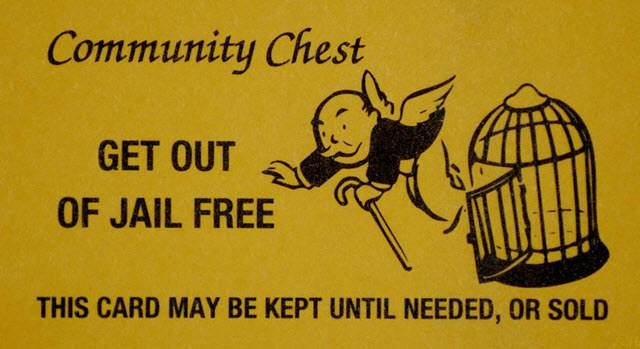
How To Get Someone Out Of Jail
It’s a situation many of us would never expect to find ourselves in, but if one of your family members ended up being arrested and sent to jail, would you know the best procedure for getting them released on bail. It is certainly better to arm yourself with the appropriate knowledge before the event happening when your mind is crystal clear and under no stress. We hope that the information contained in this article is never needed by you or your family, but if it is then we will be glad to have helped you navigate a stressful situation.
Bail – What Is It?
When someone is arrested, in nearly every circumstance the judge will grant bail of a certain financial amount. The amount set will depend on some things such as previous character, the severity of the offense, and the judge’s views as to how likely it is that the subject will abscond if given bail. Once the amount of bail has been deposited with the relevant authorities. If the accused person does not present themselves at court for the next hearing, then that bail money is forfeited.
For the majority of people who find themselves in this situation, the amount of bail can be prohibitive. Even if bail were set at $20,000, not many people would be able to lay their hands on that amount of money quickly and easily. That is exactly the situation where a bail bonds company comes in.
Bail Bonds Company
A bail bonds company, like this one in Norwalk, CA will cover the cost of the bail money for you. In general, you will pay them a 10 percent deposit which is non-refundable, regardless of the outcome of the case. They will then pay the whole cost of the bail, enabling you to get your family member released from jail quickly and with very little hassle. Once again though you need to take into consideration the probability of your family member turning up, because if they don’t then the bail bonds company will go to whatever lengths they can to recover their money.
This could even involve employing the services of a bounty hunter, who will track the accused down and return them to the court. When this happens, the bail bonds company will get the majority of their bail money returned. However, they will then bill the person who made the original agreement for the extra costs of employing the bounty hunter, and probably some administrative cost as well.
The other significant benefit of using a bail bonds company is that they fully understand the procedure for each and every jail in the state. It might seem strange, but each jail will have its proceedings to follow, and because the bail bonds company deal with all of the jails on a daily basis, they will know exactly how to expedite matters to get your loved one released as quickly as possible. They can also give you informed opinion and assist you with understanding the procedure. Employing a Bail Bonds company might not be a cheap experience, but in the majority of cases, it is a very worthwhile investment.

What Happens to My Debts if I Die?
When you die, how will take care of your debts? If you have a large amount of debt and your spouse or other family members would be overburdened by trying to pay for them, you may feel a tinge of guilt considering that they might have to pay for those debts. However, you can breathe a sigh of relief knowing that no spouse or family members would be automatically made responsible for your debts once you pass on.
In gener al, the debts you have are paid for out of your estate. So, any bank account, property holdings and other assets you own would be used to pay for the debts. The most impending debts would be paid first- those that are late or almost due. The money from your accounts would be funneled directly into debts to pay them off. If more debts remain afterwards, then your property would be sold off to pay for them. This may occur at an auction where buildings, land and personal possessions would be sold until all debts are covered.
al, the debts you have are paid for out of your estate. So, any bank account, property holdings and other assets you own would be used to pay for the debts. The most impending debts would be paid first- those that are late or almost due. The money from your accounts would be funneled directly into debts to pay them off. If more debts remain afterwards, then your property would be sold off to pay for them. This may occur at an auction where buildings, land and personal possessions would be sold until all debts are covered.
Your spouse or family members may have some say in what is sold off and how much is sold off. They may have personal connections to some of your property or they may need that property for their own well-being. In those cases, they may opt to pay for some of your debt in order to keep your possessions.
Despite what your will states about who gets what part of your holdings, if you owe debts that your assets cannot cover, that property may be sold to cover the debt. Those assets aren’t really yours to divide up until all your debts have been paid.
If there are still debts to be paid once all your assets are sold off and used up, then those debts will be paid by the estate of the deceased. Only then can any belongings from the deceased be given to the deceased’s family.
In that sense, you may want to be concerned about your debts and their effect on your family. There may be items you want to will to certain family members or money you want to leave behind. However, that won’t happen unless your debts are taken care of. If you want to ensure that certain items are given to family members upon your passing, you will need to make those arrangements before you pass on and ensure those items have been gifted before your will takes effect.
Obviously, these are pointers meant to provide a general overview of the possibilities. An estate planning attorney is the best solution when you need firm answers.
